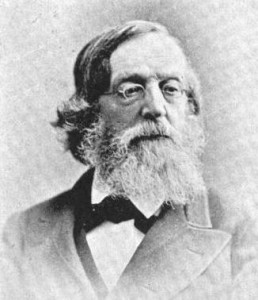Either I’m getting old or something is happening at precisely 4:48 a.m. each morning to wake me up. Whatever the case, one of the things I do to while away the early morning hours/help myself fall back asleep is listen to podcasts on all sorts of topics. This weekend it was Sam Harris debating William Lane Craig re: the following question: “What is the best foundation for the existence of objective moral values–theism or atheism?” Just to be clear, by “objective moral values,” they mean moral values that exist independent of a group or an individual’s opinion, just as physical laws exist regardless of how we would prefer them to work.
I found the discussion interesting, but I was struck immediately by a couple of issues:
1. I think this debate should have been preceded by a debate re: whether or not objective moral values exist or, if they do exist, how could we ever possibly know it. I’m sure Craig would have argued along the lines of revelation. Humans are incapable of grasping the existence of objective moral values on their own. Such knowledge can only be imparted by God. Of course, then the question becomes, “Which God? Which revelation? Which holy book?”, and then we’re back to square one, because no matter what sorts of arguments he made in support of his chosen position (Christianity, and a conservative evangelical version of Christianity at that), he could never say that his favorite set of moral values were self-evident in the same way that “All water molecules are composed of two parts hydrogen and one part oxygen” is self-evident. Otherwise there would be nothing to debate, just as we never debate the atomic structure of water. The authority of Craig’s moral matrix would always rest upon the arguments in support of that moral matrix rather than the matrix itself. Therefore, we are back into a subjective discussion of the relative merits of his arguments.
Harris, on the other hand, would have likely argued that objective moral values have an emergent quality. They aren’t imposed by a creator; they emerge as a byproduct of the evolutionary struggle for survival, just like fins, hands and brains. However, seeing as different sets of moral values have emerged at various times across various cultures, it’s impossible to say which set of values are objectively true. The closest you can come to an objective statement is to say that every culture requires a moral matrix in order to survive. Some moral matrices confer a better survival advantage than others, but none of them are objectively true in the sense that “A circle’s circumference is equal to its diameter times pi” is objectively true. Therefore, it seems that this debate would have to end in a draw. We can all offer opinions about which set of moral values are better or worse (and which standard we think is the best measuring stick), but that’s about it.
2. Moving on to the actual question of this debate, it seems to me that arguing whether theism or atheism provides the best foundation for objective moral values is a bit of a fool’s errand, because the framing of the question seemed to undercut the very point Harris and Craig were arguing, i.e. both men were offering subjective opinions about the proper foundation for objective moral values. Who could possibly arbitrate such a discussion, seeing as no one is able to offer an objective point of view?
It feels a lot like two people arguing about which is the best way to calculate the circumference of a circle: multiply the diameter of the circle times pi (C = pi*d) or double the radius and then multiply that by pi (C = 2r*pi). Both formulas will give you the right answer, but which one is best? I could argue that the first formula is best, because it’s the simplest. But what if you are in a situation where you can’t measure the full diameter of a circle? Then the second formula is best. Call it “situational circlism.”
This illustration isn’t completely accurate, of course, because the real question being debated here isn’t which worldview is the most efficient way to produce a set of objective moral values but which worldview produces the best set of objective moral values. Once again, however, we are back in the realm of the subjective. Who is in a position to determine which set of moral values is best? Best for what? Best for whom? And if we have to offer an opinion on them, how could they possibly be objective? After all, we don’t ask questions like, “Which worldview produces the best objective theory of gravity–theism or atheism?” Gravity is not dependent upon our worldview. And if objective moral values exist, neither should they.
At any rate, Harris argues that something is morally good if it promotes the flourishing of conscious creatures. Craig counters by saying something is morally good if God says it is. With Craig, we are back to the question of which god. As for Harris, I tend to agree with him, but even he has to admit his starting point is wholly arbitrary self-interested.
Where does that leave us? Like many questions these days, all I can say is, “I don’t know.” However, it seems like promoting the flourishing of conscious creatures is a good place to start. And as Harris tried to point out several times to Craig, if God is truly good and loving and others-centered, it would follow that promoting the flourishing of conscious creatures would be one of God’s primary objectives as well.
So rather than argue about the best reason to promote the flourishing of conscious creatures, perhaps we should spend more time debating the best ways to promote the flourishing of conscious creatures. Of course, that’s just my opinion, but if we are truly concerned with promoting the flourishing of conscious creatures, it seems far more constructive to focus on our main points of agreement rather than endlessly debating our differences, seeing as this debate illustrates that such arguments are ultimately irresolvable.















